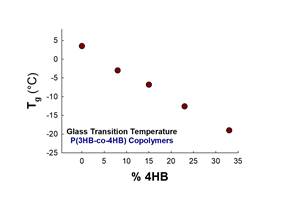The Importance of Mass Balance in Chemical Recycling
Approaches to mass balance can dramatically impact calculations of recycled content.
While chemical recycling capacities are showing signs of growth globally, legislation surrounding chemical recycling is still lacking. The global chemical recycling capacity has the potential to grow eight times from its current position by 2029, if all projects (including pre-financial investment decision (FID)) come to fruition, according to data from the ICIS Recycling Supply Tracker – Chemical. For the chemical recycling industry to realize future growth, it would be beneficial to establish clear guidelines as to how companies can allocate chemically recycled material to their products as they try to hit recycling targets. The lack of guidance in this area adds to the overall uncertainty around chemical recycling from a legal standpoint, which negatively impacts investment in the nascent industry. Investments in chemical recycling are important for broadening the scope of recyclable feedstock by targeting those plastics and their specific applications that are not suitable for mechanical recycling.
Mass balance is a method of bookkeeping to ensure proper allocation of input material in the final product.
Mass balance, or the accounting of materials entering and leaving a system, is particularly challenging with thermal depolymerization/conversion recycling, even when compared to other types of chemical recycling, as these processes typically produce more than one output. As a result, the input recycled material must be distributed to various outputs, complicating the mass balancing process. Because thermal depolymerization technologies (such as pyrolysis and gasification) are expected to have the largest growth globally based on announced plants, mass balance is now at the center of many discussions.

Global capacity in chemical recycling could grow eight times before the end of the decade, if all projects that are pre-final investment decision move forward.
Chemical Recycling and Mass Balance
Mass balance is a method of bookkeeping to ensure proper allocation of input material in the final product. As the chemical recycling industry continues to grow and mature, the concept of mass balance is becoming increasingly important to maintain clarity on how the recycled material is being allocated.
Chemical recycling is an umbrella term that encompasses many different processes to chemically break down plastics into its constituent parts. Thermal depolymerization is a subgroup of chemical recycling that involves processes that break plastic down with heat and pressure. One example of a thermal depolymerization process is pyrolysis, which is mainly used to turn polyolefins (PO) — such as polyethylene (PE) and polypropylene (PP) — into pyrolysis oil.
Pyrolysis oil — whether directly or after being refined — is mixed with virgin material before being further processed. This mixing happens early in the supply chain and, once it does, the virgin material is indistinguishable from the recycled material. At this point, mass balance takes effect to keep track of the recycled portion of the overall mixture. As this mixture continues to be processed, it is separated into various chemicals and fuels, all with their own potential end-use applications. Although the total amount of recycled material that was inputted at the start of the process is known, how these recycled units are allocated to each output will vary based on the type of mass balance approach adopted.
Different Approaches to Mass Balance
Free allocation is a method of mass balance that enables the total allocation of recycled material to be in any output. This allocation method would benefit advancements in the chemical recycling industry by providing the best cost incentives to chemical recyclers, making investing in the space more appealing. Although they cannot claim more recycled material than was inputted, they can claim all the recycled input in the polymer portion of the output to maximize value. Hence, the chemical recycling industry favors mass balance that errs on the side of free allocation.
There is pushback on this style of mass balance by certain nongovernmental organizations (NGOs), mechanical recyclers and waste management companies. NGOs often say the production of fuels in processes such as pyrolysis should not count as recycling because the production of fuel does nothing to reduce the reliance on virgin plastic and the fuel itself cannot be recovered once it is used (not closed-loop recycling). However, if thermal depolymerization is considered recycling, NGOs believe that free allocation should not be adopted. NGOs — along with mechanical recyclers and waste managers — agree in principle that a free allocation approach would lead to unreliable recycling claims about recycled content to consumers, with recycled material that should have been allocated to fuels or other outputs being claimed on plastic products.
Mechanical recyclers and waste managers have additional concerns about the incentives a free allocation approach provides. The added cost benefits could lead to a competitive market edge for the chemical industry on recycling, putting chemical recycling in a position to compete with mechanical recycling rather than complement it. Furthermore, the parties cite that adopting a method of mass balance that enables an easy integration with current technologies used to produce virgin plastic would hinder the transition away from virgin plastic.
Those who oppose free allocation suggest a stricter method of mass balance called proportional allocation as an alternative. This method of mass balance proportionally distributes recycling units to each output based on the amount formed. Advocates for proportional allocation cite this style of mass balance as being more scientifically justifiable — that is, it better aligns with how the recycling units are realistically distributed in the final output.
There are other mass balance approaches that are not as extreme as either free allocation or proportional allocation, but instead lie somewhere in the middle. The fuel-exempt approach, for example, dictates proportional allocation of recycled units to fuels, while enabling free allocation of the remaining recycled units to all other outputs. Alternatively, there is the ‘polymers-only’ method, which dictates proportional allocation of recycled units to all outputs except polymers, which can be allocated freely.
Each of these methods have their pros and cons, and ultimately lead to different claims of recycled material content in the various outputs. The chart below shows possible virgin and recycled combinations for different output scenarios depending on the mass balance approach adopted.

Recycled content percentages can vary widely for the same output, depending on the allocation method used.
Currently, the official adoption of chemical recycling in legislation is unclear, while mass balance considerations are further down the road. In the United States, for example, the adoption of chemical recycling is happening on a state-by-state basis, with 25 states currently onboard. Mass balance claims, on the other hand, are typically certified by external bodies such as the International Sustainability and Carbon Certification (ISCC) system.
The European Union (EU), for comparison, is developing an EU-harmonized method. Directive 2008/98/EC (Waste Framework Directive) — the piece of legislation most cited to provide a legal definition of recycling — does not make the full recognition of chemical recycling clear. In the EU, mass balance claims are similarly certified by bodies such as the ISCC system.
Regardless of the type of mass balance approach adopted, without the coadoption of chemical recycling and mass balance, the chemical recycling industry will continue to be shrouded in uncertainty, leading to hampered industry growth.
Related Content
Inside the Florida Recycler Taking on NPE’s 100% Scrap Reuse Goal
Hundreds of tons of demonstration products will be created this week. Commercial Plastics Recycling is striving to recycle ALL of it.
Read MoreNPE2024 Wrap-Up: Sustainability Dominates Show Floor News
Across all process types, sustainability was a big theme at NPE2024. But there was plenty to see in automation and artificial intelligence as well.
Read MoreFilm Extrusion: Boost Mechanical Properties and Rate of Composting by Blending Amorphous PHA into PLA
A unique amorphous PHA has been shown to enhance the mechanical performance and accelerate the biodegradation of other compostable polymers PLA in blown film.
Read More‘Monomaterial’ Trend in Packaging and Beyond Will Only Thrive
In terms of sustainability measures, monomaterial structures are already making good headway and will evolve even further.
Read MoreRead Next
See Recyclers Close the Loop on Trade Show Production Scrap at NPE2024
A collaboration between show organizer PLASTICS, recycler CPR and size reduction experts WEIMA and Conair recovered and recycled all production scrap at NPE2024.
Read MoreLead the Conversation, Change the Conversation
Coverage of single-use plastics can be both misleading and demoralizing. Here are 10 tips for changing the perception of the plastics industry at your company and in your community.
Read MoreFor PLASTICS' CEO Seaholm, NPE to Shine Light on Sustainability Successes
With advocacy, communication and sustainability as three main pillars, Seaholm leads a trade association to NPE that ‘is more active today than we have ever been.’
Read More





















